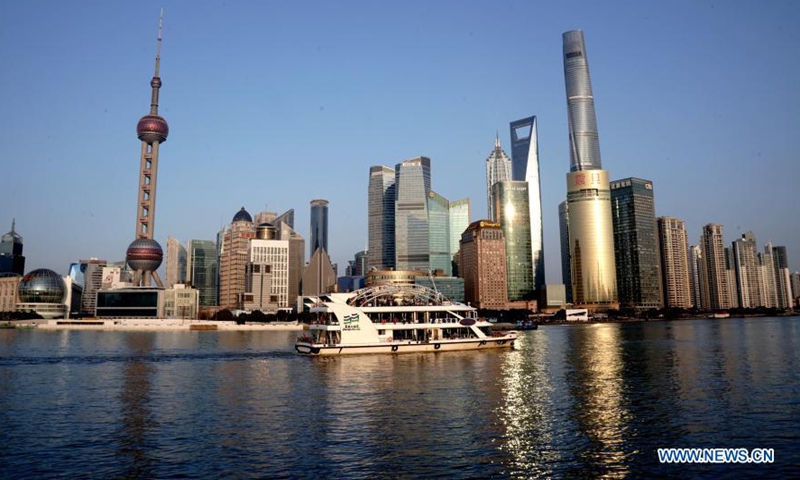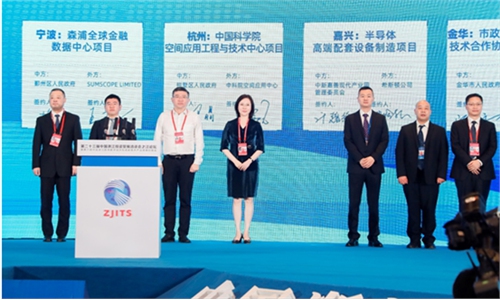China's FM says regulatory actions will improve business environment, vows continued opening-up

A tourist boat sails on the Huangpu River next to the Bund during the Lunar New Year holiday in east China's Shanghai, Feb. 14, 2021. (Xinhua/Zhang Jiansong)
China will firmly follow through on the pledge to further open up its economy, and its recent market regulatory actions are aimed at creating a more market-oriented, law-based international business environment to benefit investors and consumers, China's Foreign Ministry said on Thursday, as China's recent regulatory moves attracted widespread attention globally.
The Chinese government has adopted regulatory measures based on laws and rules, which is conducive for promoting a market environment characterized by fair competition and providing broad development opportunities for various market players especially small and medium-sized firms, Wang Wenbin, a spokesperson for the Foreign Ministry, told a regular briefing.
More efforts will be made to improve the fair competition mechanism, reform the market regulation system and enhance anti-monopoly regulation, in an aim to create a more market-oriented, law-based international business environment that will ultimately bring benefits to investors, operators and consumers, Wang said.
In a fresh sign of China's resolve to further strengthen market regulations, a recent meeting of the central committee for deepening overall reform approved guidelines on ramping up antitrust regulations and improving implementation of fair competition policies, as the country pursues high-quality development and common prosperity.
The meeting demonstrated once more that China's antitrust efforts are not aimed at regulating certain individual players, but at creating a fair market for all kinds of entities from home and abroad, experts said, adding that creating a relatively balanced and fair market environment could steadily drive China toward the secondary centenary goal.
Since last year, some Chinese internet heavyweights have been investigated for alleged monopolistic behavior. The State Administration for Market Regulation, China's top market regulator, announced in April a record $2.8 billion antitrust fine on e-commerce giant Alibaba. Later that month, an anti-monopoly investigation was also launched into food delivery giant Meituan.
The clear signal of strengthening regulation on platform-based companies that violate laws and regulations should not be negatively interpreted nor should it be treated as sign of China taking "a backward step" as some Western media have portrayed, experts said.
"I would also like to stress that China's determination to open up will not waver and our door will only open wider," Wang said.
Foreign direct investment into the Chinese mainland surged 28.7 percent year-on-year to 607.84 billion yuan ($90.96 billion) in the first half of this year, data from the Ministry of Commerce showed. The value increased 27.1 percent from the same period in 2019.


